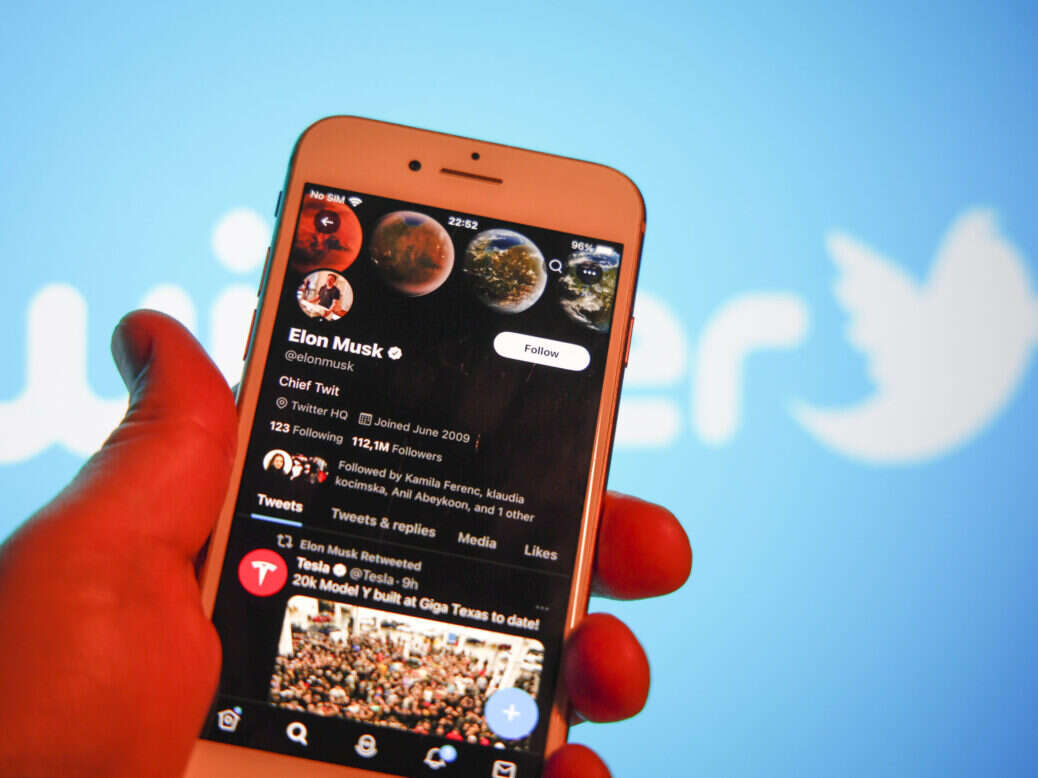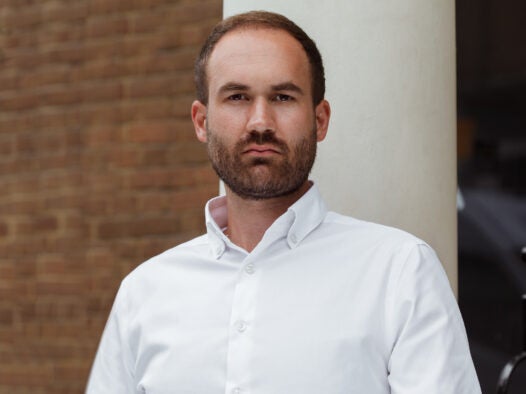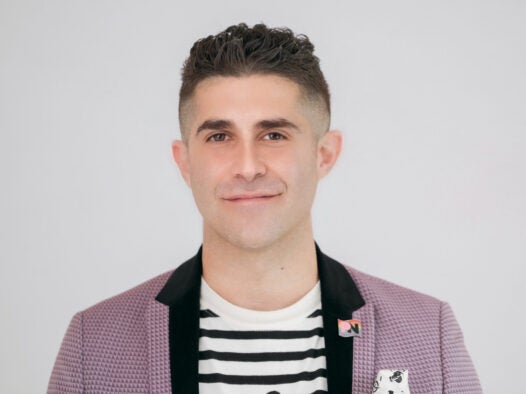
Twitter blue ticks and whether they will be worth paying for by journalists and media organisations wanting to prove their authenticity and trustworthiness has become one of the biggest stories since Elon Musk bought the platform last week.
Publishers are already considering whether they would pay for their brand accounts and journalists to be verified under a Twitter Blue subscription if Musk’s plans go ahead.
It was initially reported that just days after buying Twitter, the world’s richest man was considering charging $19.99 (£17.38) per month for users to have the blue tick symbolising the fact they are verified – although he already appears to have backed down on the price and is now saying it “will cost $8 (£6.96).
In an exchange on Monday with author Stephen King, who said he would not pay to remain verified, Musk said: “We need to pay the bills somehow! Twitter cannot rely entirely on advertisers. How about $8?” Advertising currently accounts for around 90% of Twitter’s revenue.
Musk repeated the $8 proposal on Tuesday, saying: “Twitter’s current lords and peasants system for who has or doesn’t have a blue checkmark is bullshit. Power to the people! Blue for $8/month.”
If users who are currently verified do not subscribe to Twitter Blue within 90 days of the new functionality launching, they would lose their blue tick, The Verge reported.
Twitter Blue is currently $4.99 (£4.34) per month but has only gone live in the US, Canada, Australia and New Zealand and it is not yet clear how the changes would apply to other countries.
Its features include fast-loading, ad-free articles from participating publishers, an “undo tweet” option to alter posts before they are made public, and early access to other new features such as editing tweets.
Musk said the new package would include priority in replies, mentions and search, which he claimed would help “defeat spam/scam”, plus the ability to post longer video and audio, see half as many adverts and bypass the paywalls of publishers “willing to work with us”.
Currently blue ticks on Twitter are available to accounts “of public interest” so users can see they are authentic – these include news organisations, journalists, politicians and celebrities. Anyone who wants to gain verified status must submit proof of their “notability and authenticity”. Musk said of his proposal: “There will be a secondary tag below the name for someone who is a public figure, which is already the case for politicians.”
What do publishers think of the Twitter blue tick changes?
Goal and Mundial publisher Footballco is among those keeping a close eye on developments at Twitter. Goal’s main account is the biggest football page on Twitter with 6.6 million followers while the company has 18 million followers across all its brands.

Footballco’s SVP of content and creative James Lamon said in a statement to Press Gazette that Musk’s move could be a “welcome change” but could also reduce the significance of the symbol.
“The blue tick is necessary to distinguish our reporting and our journalists from copycats,” he said. “A paid tick would create an arms race where every brand user and human user will need to verify themselves to look legitimate. Conversely, this makes the blue tick less of a status symbol and could reduce the notability conferred by the mark today.”
Lamon, who does not have a blue tick but has not tweeted since July 2020, added: “If the measure improves the quality of discourse on Twitter, it would be a welcome change. It does mark a new era where platforms charge their most active users for services instead of rewarding their activity with a revenue share on advertisements.
“I would be interested to see Twitter launch an even more robust advertising scheme in companion with the proposed changes that rewards publishers for the investments they make in publishing content on the platform. This would further incentivise frequent users, publishers, and brands to make Twitter the focus of their social media strategy.”

Pink News chief executive Benjamin Cohen, who is verified on Twitter, told Press Gazette the blue tick was important to verify the brand’s real accounts to distinguish them from fakes spreading hate speech.
But he said they would have to think about whether it was worth paying for the Twitter Blue service. Pink News currently brings in “significant revenue” through a video advertising partnership with Twitter.
He also pointed out, as others have done, that journalists, publishers and public figures played a major part in building up Twitter’s popularity.
Cohen said: “Elon Musk has shown that he doesn’t understand what the blue tick verification is for on Twitter. While to some, the blue tick appears to be a status symbol that I’m sure some ordinary users would be willing to pay for, that’s not what its purpose is. It is supposed to be there to distinguish genuine accounts as opposed to accounts impersonating another person or brand.
“On Twitter there are many accounts using PinkNews’ logo, some declared as parodies and others spreading hate speech. It is important for our users to know that they are engaging with the real brand rather than an imitator.
“The fact is that the verified users, consisting of brands, publishers, politicians, celebrities and journalists produce a significant level of the content of value on Twitter. Rather than charging these users for the privilege of verifying they are who they say they are, Elon Musk should instead be paying these users for producing content that Twitter ultimately monetises through advertising.”
Cohen added: “PinkNews would consider what benefits it offers considering our existing business partnership with Twitter to monetise our video content on the platform and jointly respond to advertiser briefs.”
What do journalists think of the Twitter blue tick changes?
Press Gazette held a snap poll to our audience of journalists on Twitter on Monday afternoon. The vast majority said they would not pay for a blue tick under any circumstance.
Of 885 people who responded, just 5% said they would pay up to $19.99 for the blue tick – although 7% said it depended what else was in the Twitter Blue package.
Some 84% said they would not pay, while 4% suggested they would not pay that top price but might pay a lesser amount.
Some journalists, however, did suggest they would at least consider it. Verified Times columnist Caitlin Moran said she would be “perfectly happy to pay” – but only if the money went on improving Twitter such as by introducing a “properly staffed department to deal with death and rape threats”. Moran added: “Otherwise, paying to provide free content seems a bit… shit.”
And Reach’s verified head of social media and engagement Dan Russell said he would pay $8 if it came with other features under Twitter Blue such as its ad-free newsreader.
In terms of whether Reach might pay for its brand accounts to have the blue tick, he added: “We would have to take a view on if we were to pay for our brands because we have a lot of accounts but Elon Musk mentioned being more supportive to local news so maybe there is a deal to be done because verification is important.”
Insider surveyed a number of US publishers over whether they would pay for their journalists to be verified. CNN said it was “highly unlikely” it would cover the cost for “all employees” whereas digital publisher Puck said it would pay out of its marketing budget for its dozen journalists.
Puck’s co-founder and editor-in-chief Jon Kelly told Insider: “It’s a negligible amount of money for most media companies, even the largest that employ thousands of journalists.”
AFP’s Hong Kong/Taiwan/Macau bureau chief Jerome Taylor said he would “happily unverify” if charged, but warned blue ticks are important to journalists because they can “lower [the] risk of impersonation by trolls/bad actors, which has become a big issue and is especially risky for those working in autocracies”.
PA’s law editor Sian Harrison, who is verified, similarly said the move could hinder the fight against disinformation: “The loss will be that the public won’t know whether they’re reading info from a genuine journalist or a bot tweeting utter guff.”
And Walt Mossberg, on the board of the News Literacy Project in the US and a former executive editor at the tech news website The Verge who is verified and pays for Twitter Blue in its current state, said: “One of the things Twitter needs is *more* trust and transparency, to make it harder for the bad actors to do things like impersonate others. Suddenly charging – a lot – for existing free verification will slash its use and harm the platform. Find a new, helpful feature to sell.”
This chimes with why Michael Nevins, chief marketing officer at publisher adtech company Equativ, suggested journalists and publishers “may have no choice” about it if they want to keep user trust.
“The jury is still out on all things Twitter at the moment. Authenticity, trust, and credibility for the entire platform could be at stake,” he said.
“Publishers and journalists may have no choice in this matter, but once again, they are at the mercy of decisions taken by the big platforms. This should concern anyone in journalism and all of us who depend upon the open web.”
Email pged@pressgazette.co.uk to point out mistakes, provide story tips or send in a letter for publication on our "Letters Page" blog
